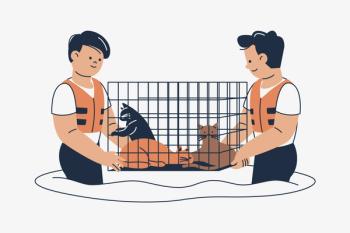
$75 million offered for new sterilization method, research
Grants and prize money are offered for a non-surgical sterilization method.
Chicago
-- Two groups are offering $75 million in incentives for the development of a non-surgical sterilization method for cats and dogs.
Skip Nall/Getty Images
The $25 million Michelson Prize in Reproductive Biology was announced at the SPAY/USA Conference in Chicago Oct. 16. The offering is through a partnership between the Found Animals Foundation (FAF) and the Alliance for Contraception in Cats and Dogs (ACC&D) and is aimed at spurring an international competition to encourage researchers from many scientific fields to take on the challenge of non-surgical sterilization, says ACC&D.
The winner must create a single-dose, non-surgical sterilant that is effective in both male and female cats and dogs. The method must be suitable for administration in any field setting, either orally or by injection, and have a clear pathway to regulatory approval with reasonable manufacturing costs, according to FAF.Also being offered is up to $50 million in Michelson Grants in Reproductive Biology. Proposed research is not required to meet all of the prize criteria, but preference will be given to proposals which could result in the creation or a prize-winning product of technology, FAF says. To be considered for grants, applicants must submit a letter of intent with an approach for developing a single-dose sterilant, a method for meeting their goal, and a complete overview of the required research, not including budget estimates. Proposals no longer than two pages in length can be sent to
Researchers have been on the verge of developing pet contraceptives and non-surgical sterilants for years, but a lack of funding has stalled the projects in the early stages, according to ACC&D.
In a related study, also released Oct. 16 and conducted by ACC&D, nearly all veterinarians surveyed agreed that unplanned litters created problems. However, 6 out of 10 shelter veterinarians surveyed think there is a need for non-surgical sterilization, while 6 out of 10 private practice veterinarians surveyed said there is no need for a non-surgical alternative because surgical sterilization techniques are adequate. The survey compared input from 200 general practice and small-animal veterinarians to input from 240 veterinarians who are registered as members of the Association of Shelter Veterinarians.
For more information about the study, visit ACC&D's
Newsletter
From exam room tips to practice management insights, get trusted veterinary news delivered straight to your inbox—subscribe to dvm360.




